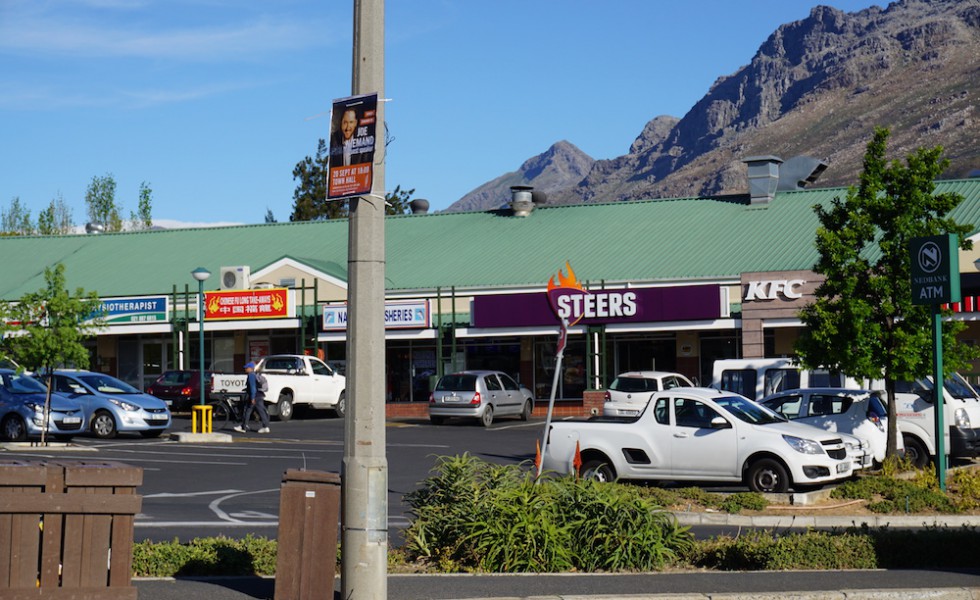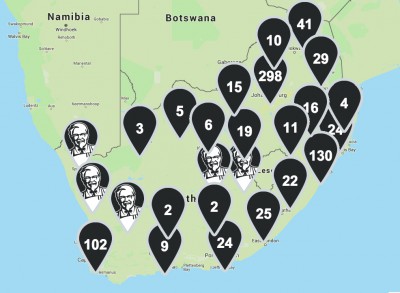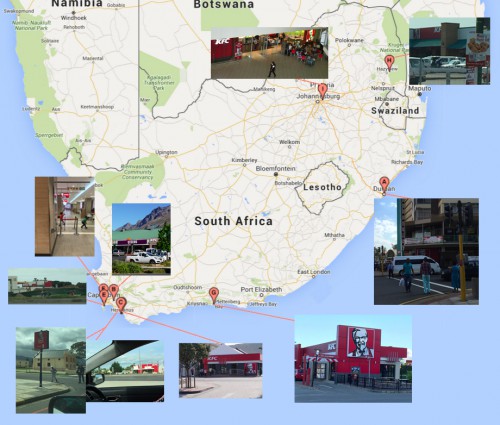
Poultry “Progress” in South Africa and Beyond (Part I)

One of 802 KFC restaurants in South Africa, here adjacent to national quick-serve chain, Steers. Photo by Caroline Wimberly.
Caroline Wimberly traveled to Durban, South Africa in late August 2015 to attend three conferences on behalf of Brighter Green. Afterwards, she traveled extensively around the country. This blog is the first in a four-part series on her experiences and observations during the trip.
As Brighter Green has documented previously (here and here, to start), Western-style fast food chains have expanded quickly in the developing world. Judy Bankman wrote about the effects of these chains on public health and food security in South Africa. I saw my fair share of Kentucky Fried Chicken (KFC) outposts during my travels. In fact, I encountered more KFCs in South Africa than any other quick service food chain (including McDonalds). Cheap, “finger-licking” chicken products are highly popular, and due to the quick development of industrial poultry facilities around the country, are widely available.
In 2012, South Africa had more than 600 KFC outlets, with about 8-10% of the commercial chickens produced domestically being sold through KFC, according to a KFC executive. As of October 2015, there are over 800 restaurants, according to KFC South Africa’s website (about a 33% increase from 2012). Below is a map from their website showing the distribution of these locations:
Here is a map of the KFCs I witnessed during my travels:
While there are nowhere near as many KFCs in South Africa as there are in the U.S. (about 4,370) or China (about 4,828), the “success” of the chain in South Africa is influencing major development in other Sub-Saharan African countries. Even Bill Gates is invested in this trend (even as he is also invested in Beyond Meat, a plant-based meat substitute brand… he’s certainly diversified). The Gates Foundation teamed up in 2010 with controversial U.S. agribusiness giant Cargill and the U.S.-based development organization Technoserve on an $8 million “soy pipeline” which aimed to include more small farmers in the large soy market needed for African chicken growers. This soy was destined for seven Zambian wholesalers, at least one of which has South African ownership, to eventually supply fast food chains like KFC (no update on the current state of this ‘pipeline’ was easily found).
While certainly there are immediate short-term improvements to local economies through jobs, increased profits, and reliable supply chains, the long-term effects on the land, public health, water/soil/air quality, and animal welfare remain largely undocumented. As demand increases, it is likely that larger facilities (owned by fewer farmers/businesses) will be favored, and where will that leave all the small farmers? And the chickens?
 Brighter Green
Brighter Green





